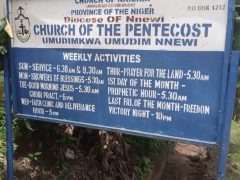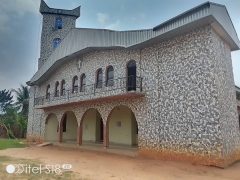[responsivevoice_button voice=”US English Male” buttontext=”listen”]
SOCIAL MEDIA OBSESSION: NIGERIA SPENDS 3 HOURS 23 MINUTES DAILY
“According to a recent (2024) data analysis, Nigeria ranks fifth globally in terms of average daily time spent on social media, with users spending approximately 3 hours and 23 minutes online.
TOP TEN COUNTRIES BY SOCIAL MEDIA USAGE
1. Kenya – 3h 43m
2. South Africa – 3h 37m
3. Brazil – 3h 34m
4. Philippines – 3h 33m
5. Nigeria – 3h 23m
6. Colombia – 3h 22m
7. Chile – 3h 11m
8. Indonesia – 3h 11m
9. Saudi Arabia – 3h 10m
10. Argentina – 3h 8m
OTHER COUNTRIES :
– Mexico – 3h 4m
– Malaysia – 2h 48m
– Ghana – 2h 43m
– Egypt – 2h 41m
– Thailand – 2h 30m
– Bulgaria – 2h 26m
– Vietnam – 2h 23m
– Portugal – 2h 23m
– Romania – 2h 20m
– Italy – 2h 17m
KEY INSIGHTS:
– Africans spend the most time on social media (Kenya, South Africa, Nigeria)
– Latin Americans also have high social media engagement (Brazil, Colombia, Argentina)
– Asians show significant social media usage (Philippines, Indonesia, Malaysia)
– Europeans have relatively lower social media engagement (Italy, Portugal, Romania)
AVERAGE DAILY TIME SPENT ON SOCIAL MEDIA :
– Global average: 2h 30m (estimated)
– Nigeria’s average: 3h 23m (5th globally)
IS NIGERIAN’S SOCIAL MEDIA OBSESSION REALLY WORTH IT?
PROS:
1. Connectivity: Social media helps Nigerians connect with friends, family, and community, both locally and globally.
2. Information sharing: Platforms provide access to news, education, and entertainment.
3. Business opportunities: Social media enables entrepreneurship, marketing, and networking.
4. Self-expression: Users can share their thoughts, creativity, and talents.
5. Community building: Social media fosters online communities around interests.
CONS:
1. Addiction: Excessive social media use can lead to decreased productivity, mental health issues, and sleep deprivation.
2. Misinformation: Spread of fake news, propaganda, and harmful content.
3. Cyberbullying: Online harassment and intimidation.
4. Comparison culture: Unhealthy comparisons and decreased self-esteem.
5. Distraction: Social media can distract from important tasks, relationships, and personal growth.
ECONOMIC IMPLICATIONS :
1. Productivity loss: Estimated 2-3% GDP loss due to social media distraction.
2. Opportunity cost: Time spent on social media could be invested in education, skills development, or entrepreneurship.
3. Digital colonization: Foreign social media platforms dominate the Nigerian market, potentially exploiting user data.
SOCIAL IMPLICATIONS :
1. Mental health concerns: Increased stress, anxiety, and depression.
2. Social isolation: Decreased face-to-face interactions and deepened social divisions.
3. Cultural homogenization: Loss of traditional cultural values and norms.
BALANCED APPROACH :
1. Set boundaries: Establish social media-free times and spaces.
2. Prioritize offline activities: Engage in physical exercise, reading, or creative pursuits.
3. Critical thinking: Evaluate online information and sources.
4. Digital literacy: Educate users on online safety, etiquette, and responsibility.
5. Policy interventions: Governments can regulate social media platforms and promote digital wellness.
Ultimately, Nigerians must weigh the benefits and drawbacks and adopt a balanced approach to social media usage.




















